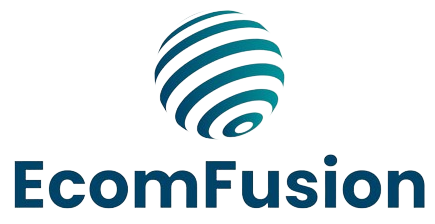Starting an Amazon wholesale business can be a lucrative venture for entrepreneurs looking to leverage the platform’s vast customer base and logistical infrastructure. Selling wholesale on Amazon involves sourcing products in bulk from manufacturers or distributors and reselling them on the marketplace. This comprehensive guide will walk you through the essential steps to kickstart your Amazon wholesale business, from sourcing products to optimizing your listings for maximum visibility and sales.
Step 1: Research and Choose Your Niche
Research Market Trends
Before diving into sourcing products, conduct thorough market research to identify profitable niches and products with sufficient demand on Amazon. Use tools like Jungle Scout, Helium 10, or Amazon’s own Best Sellers and Hot New Releases categories to analyze trends, competition, and sales potential.
Choose Your Product Category
Select a niche or product category that aligns with your expertise and market demand. Consider factors such as profit margins, competition level, and seasonality to make an informed decision.
Step 2: Find Reliable Suppliers
Identify Manufacturers and Distributors
Locate reputable manufacturers or distributors that offer products at wholesale prices. Attend trade shows, utilize online directories like Alibaba, ThomasNet, or Global Sources, and network with industry contacts to find reliable suppliers.
Verify Supplier Credentials
Ensure suppliers have a proven track record of quality products and reliable shipping. Request samples to evaluate product quality firsthand before committing to larger orders.
Step 3: Establish Business Relationships
Negotiate Terms and Pricing
Negotiate favorable terms with suppliers regarding pricing, minimum order quantities (MOQs), shipping costs, and payment terms. Establish a mutually beneficial relationship that allows for competitive pricing on Amazon.
Sign Contracts
Formalize agreements with suppliers through contracts that outline terms of partnership, including product specifications, pricing, exclusivity (if applicable), and dispute resolution procedures.
Step 4: Create Seller Central Account on Amazon
Register as a Seller
Sign up for a Professional Seller account on Amazon Seller Central. This subscription-based account provides access to tools and features necessary for managing a wholesale business, including bulk listing uploads and inventory management.
Complete Account Setup
Follow Amazon’s guidelines to complete your seller profile, set up payment methods, and configure shipping preferences. Ensure compliance with Amazon’s Seller Policies and Selling on Amazon Fee Schedule.
Step 5: List Your Products
Create Product Listings
Utilize Amazon’s bulk listing tools or third-party listing software to upload products in bulk. Optimize listings with compelling titles, detailed descriptions, high-quality images, and relevant keywords to improve visibility in search results.
Set Competitive Prices
Research competitors’ pricing strategies and set competitive prices for your products. Consider factors like shipping costs, Amazon fees, and profit margins when determining pricing strategies.
Step 6: Manage Inventory and Fulfillment
Monitor Inventory Levels
Implement inventory management practices to track stock levels and prevent stockouts or overstock situations. Use Amazon’s Inventory Dashboard to monitor sales velocity and forecast future inventory needs.
Choose Fulfillment Method
Select a fulfillment method that best suits your business model:
- Fulfillment by Amazon (FBA): Amazon handles storage, packing, shipping, and customer service.
- Fulfillment by Merchant (FBM): You handle fulfillment and shipping directly to customers.
Step 7: Optimize Product Listings
Enhance Product Descriptions
Continuously optimize product listings based on customer feedback and performance metrics. Use A/B testing to experiment with different titles, bullet points, and images to improve conversion rates.
Use Enhanced Brand Content (EBC)
If eligible, leverage Amazon’s Enhanced Brand Content (EBC) or A+ Content to enhance product listings with multimedia content like videos and comparison charts. This can significantly increase engagement and sales.
Step 8: Launch and Promote Your Products
Launch Strategies
Implement launch strategies such as Amazon Pay-Per-Click (PPC) advertising campaigns, promotions, and social media marketing to drive initial traffic and sales. Monitor campaign performance and adjust strategies based on analytics.
Solicit Customer Reviews
Encourage satisfied customers to leave positive reviews and ratings, as these can influence purchase decisions and improve your product’s ranking on Amazon search results.
Step 9: Monitor Performance and Adjust Strategies
Track Key Performance Indicators (KPIs)
Monitor sales metrics, customer feedback, and inventory turnover to assess business performance. Use Amazon Seller Central’s analytics tools to gain insights into sales trends and customer behavior.
Adapt to Market Changes
Stay agile and responsive to market dynamics by adjusting pricing, product offerings, and marketing strategies based on competitive analysis and customer feedback.
Step 10: Scale Your Business
Expand Product Catalog
Diversify your product offerings within your chosen niche or explore new categories to capture additional market segments and increase revenue streams.
Explore International Markets
Consider expanding your Amazon wholesale business to international Amazon marketplaces like Amazon EU or Amazon Japan to reach a broader global audience.
Conclusion
Starting an Amazon wholesale business requires careful planning, diligent research, and strategic execution. By following these steps—from researching market trends and sourcing products to optimizing listings and scaling your business—you can build a successful wholesale operation on Amazon. Remember to stay informed about Amazon’s policies and guidelines to ensure compliance and long-term success in the competitive e-commerce landscape. With persistence and dedication, your Amazon wholesale business can thrive and become a profitable venture.


